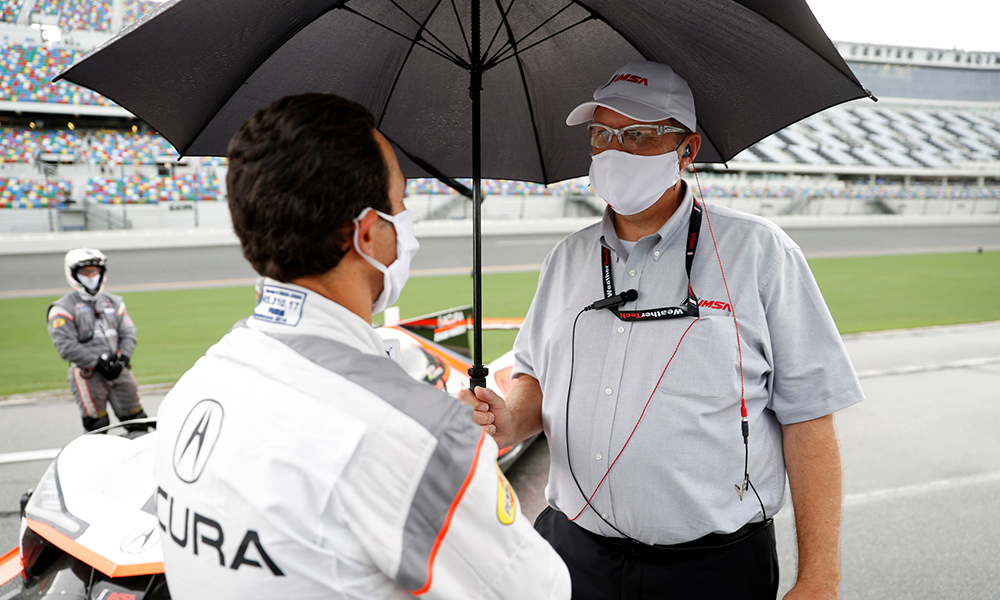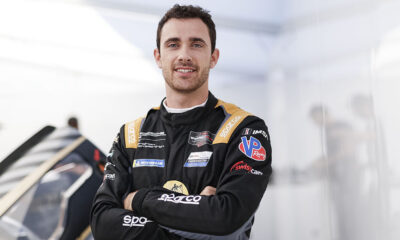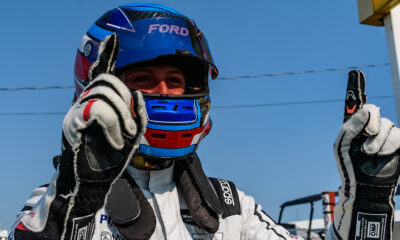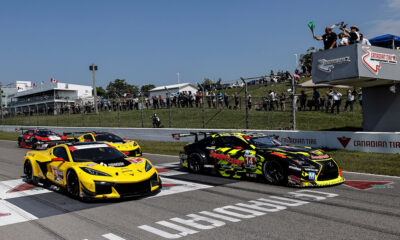
Photo: Mike Levitt/IMSA
IMSA President John Doonan said he’s been impressed with the professionalism and courtesy seen by competitors in the new COVID-19 era, which has enabled all of its series to return to racing, under new health protocols, amid the ongoing pandemic.
Last weekend’s event at Road America marked the third race back for the WeatherTech SportsCar Championship following a five-month pause, while Michelin Pilot Challenge, IMSA Prototype Challenge and most recently, Porsche GT3 Cup Challenge USA by Yokohama, have all since restarted as well.
The IMSA-sanctioned Lamborghini Super Trofeo North America series, meanwhile, is due to begin its season this weekend.
Doonan, in his first year as IMSA president, said he’s had a “full immersion” into the inner-workings of the company and its partners, although has taken an upbeat approach to the challenging situation.
“I think the beauty of having a foundational staff — it was already there before I arrived — helps me getting up to speed,” he told Sportscar365.
“The collaboration that we have with NASCAR and this particular situation with the event operations protocol has been fantastic. We built those protocols together with them.
“We are taking it seriously because number one we wanted to get back safely to business as fast as we possibly could.
“Fortunately we were able to do that using some of the learnings that NASCAR had from the early Darlington, Charlotte races that they did.
“The other piece was getting the buy-in from our community.”
Doonan said having the first two races at IMSA or NASCAR-owned properties helped ease the transition back to racing in in a safe manner.
“Everybody really has bought in [to the protocols],” he said. “I’m extremely proud of how the entire community whether it’s, GT3 Cup, Prototype Challenge, Michelin Pilot Challenge, WeatherTech, how everyone’s really embraced it.
“You walk through our paddock. The only time you see somebody that’s pulled their mask down is if they’re taking a drink of water but otherwise everybody has really done a fantastic job of abiding by the protocol.”
The other big hurdle IMSA faced for its restart was getting the foreign drivers and other essential personnel into the country, which was accomplished through working with the U.S. Department of Homeland Security.
“Getting the international participants back in was another little bit of a tricky road but thank goodness our government affairs folks have great relationships with Homeland Security and Customs and Border Protection that’s worked super smooth,” Doonan said.
“There’s been no real issues for anybody getting back in or being able to get out and then back in, so that’s positive.”
While IMSA has suggested that teams follow the CDC’s recommendation of self-isolating for 14 days upon arrival into the U.S., it’s understood the majority of foreign drivers will not be able to do that as the season progresses due to having other racing commitments in Europe.
COVID-19 Testing Mandate Led to Watkins Glen, Lime Rock Cancelations
The challenges that IMSA, and nearly every other sporting organization that’s attempting to hold events in the COVID-19 era, has been faced with is navigating through state and regional protocols that have been changing on weekly, and sometimes daily basis.
IMSA was forced to cancel its Watkins Glen and Lime Rock Park rounds due to mandates from the states of New York and Connecticut that would have required every person attending the event to be tested for COVID-19, something that Doonan said was not financially viable.
Unlike Formula One and Formula E, IMSA is not currently conducting mandatory COVID-19 testing.
Doonan said that local governments had given travel waivers for NASCAR and IMSA competitors entering the Northeast region, which is currently enforcing a 14-day quarantine upon arrival for people from more than 30 states.
“More than the quarantine was the required testing for everybody in the paddock,” Doonan explained. “The costs associated with it, the time that it takes… We just don’t want to put anybody at risk, first their health.
“Second, [the teams] are all operating and came into 2020 with a budget plan. We want to respect that.
“That same goes for all of our corporate partners. We want to get the races in safely and deliver the value that everyone expects out of IMSA.”
Doonan: “The Key is to Keep the Facility Clean”
While it has a secondary screening process in its operations protocol, Doonan said any COVID-19 tests on people deemed “questionable” are undertaken off-site.
“The key is to keep the facility clean,” he said. “Our medical liaisons are all properly trained. They have emergency room [experience] and are many decades-long veterans of the medical profession.
“Our medical screening process upon entry has received many rave reviews from our participants. We try to make it as efficient as possible.”
Each team is responsible for reporting positive COVID-19 results to IMSA, according to Doonan, who cited the example of Felipe Nasr.
Nasr tested positive in the buildup to the WeatherTech 240 at Daytona but did not come to the track and avoided exposure to his Action Express Racing team.
While series such as SRO America have rolled out with additional measures including a contact tracing app, Doonan said they’re comfortable with their protocol they have in place at the moment.
“Based on what’s happening state-to-state and what’s happening in certain applications like that, we’re looking at it,” he said. “But at the moment we’re comfortable with what we have.”























